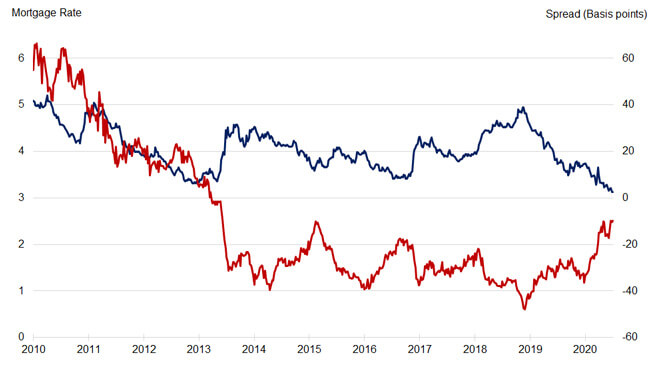Jumbo Loan: Financing Solutions for Homes Above Conforming Limits
The Effect of Jumbo Car Loans on Your Funding Alternatives: What You Need to Know Before Applying
Jumbo fundings can play a pivotal role in forming your financing choices, particularly when it comes to obtaining high-value homes. While they supply the chance for larger financing amounts without the worry of exclusive home loan insurance policy (PMI), they likewise come with stringent credentials standards that need cautious factor to consider. Comprehending the equilibrium between the obstacles and benefits postured by these fundings is necessary for possible customers. As you weigh your alternatives, the effects of rate of interest and product availability might motivate you to reassess your financial strategy moving onward (jumbo loan).
Comprehending Jumbo Financings
Recognizing Jumbo Loans requires a clear grasp of their one-of-a-kind qualities and needs. Big lendings are a kind of home loan that goes beyond the adjusting funding restrictions developed by the Federal Real Estate Money Firm (FHFA) These restrictions vary by location yet normally cap at $647,200 in a lot of locations, making jumbo car loans important for financing higher-priced properties.
One of the specifying features of jumbo finances is that they are not qualified for acquisition by Fannie Mae or Freddie Mac, which results in more stringent underwriting standards. Debtors should often show a greater credit rating score, commonly over 700, and offer significant documents of earnings and assets. In addition, lending institutions may need a bigger deposit-- typically 20% or even more-- to minimize danger.
Rate of interest prices on jumbo lendings can be somewhat greater than those for adapting lendings as a result of the raised risk assumed by the lending institution. The absence of exclusive home loan insurance (PMI) can counter some of these prices. Recognizing these variables is crucial for prospective consumers, as they dramatically influence the terms and usefulness of protecting a jumbo financing in today's affordable actual estate market.
Advantages of Jumbo Loans
Jumbo fundings use unique benefits for property buyers looking for to acquire high-value residential properties that go beyond conventional financing limitations. One of the main benefits of jumbo financings is their capacity to finance larger quantities, enabling buyers to get homes in costs markets without the restraints imposed by adjusting lending restrictions - jumbo loan. This adaptability allows property buyers to see a broader variety of properties that may much better fit their demands and choices
In addition, jumbo financings typically include competitive rate of interest, particularly for consumers with solid credit rating accounts. This can result in significant cost savings over the life of the funding, making homeownership more economical in the future. Big lendings can be tailored to match individual economic circumstances, providing numerous terms and amortization options that line up with the consumer's objectives.

Obstacles of Jumbo Financings
Navigating the visit site complexities of big car loans provides a number of obstacles that potential consumers should be conscious of prior to proceeding. Unlike adapting loans, jumbo financings are not backed by government-sponsored enterprises, leading lending institutions to adopt more extensive criteria.
In addition, jumbo fundings typically come with higher rates of interest compared to conventional finances. This raised cost can considerably affect month-to-month settlements and overall affordability, making it necessary for consumers to thoroughly evaluate their monetary scenario. The down payment requirements for jumbo finances can be significant, usually varying from 10% to 20% or even more, which can be an obstacle for several possible homeowners.
An additional challenge depends on the limited accessibility of jumbo financing products, as not all loan providers offer them. This can result in a minimized swimming pool of options, making it vital for consumers to conduct complete study and potentially seek specialized lending institutions. Overall, understanding these difficulties is crucial for any person considering a jumbo funding, as it makes certain informed decision-making and better financial planning.
Certification Requirements
For those thinking about a big finance, fulfilling the credentials criteria is an important step in the application procedure. Unlike traditional lendings, jumbo lendings are not backed by government companies, leading to more stringent needs.
To start with, a solid credit scores score is crucial; most loan providers require a minimal score of 700. In addition, debtors are usually anticipated to demonstrate a substantial earnings to ensure they can pleasantly manage greater regular monthly settlements.
Deposit requirements for big lendings are additionally considerable. Borrowers should anticipate taking down at the very least 20% of the building's acquisition rate, although some loan providers may use options as low as 10%. In addition, demonstrating cash money reserves is vital; lenders typically call for proof of adequate fluid assets to cover a number of months' well worth of mortgage payments.
Comparing Financing Choices
When reviewing funding choices for high-value homes, recognizing the differences in between numerous finance kinds is crucial. Jumbo fundings, which surpass adjusting loan limits, generally included stricter certifications and higher rate of interest rates than traditional fundings. These finances are not backed by government-sponsored ventures, which raises the lending institution's threat and can cause a lot more rigid underwriting requirements.
In contrast, traditional car content loans provide more flexibility and are often less complicated to get for debtors with solid debt accounts. They may come with lower passion prices and a larger array of alternatives, such as dealt with or variable-rate mortgages. Furthermore, government-backed lendings, like FHA or VA lendings, give chances for lower deposits and even more lax credit rating needs, though they likewise impose limitations on the car loan quantities.

Conclusion
To conclude, jumbo financings existing both opportunities and challenges for prospective property buyers seeking financing for high-value residential properties. While these financings enable larger quantities without the burden of private mortgage insurance, they come with stringent qualification requirements and potential drawbacks such as greater passion prices. A detailed understanding of the difficulties and benefits connected with jumbo lendings is important for making informed choices that straighten with long-lasting monetary goals and purposes in the actual estate market.
